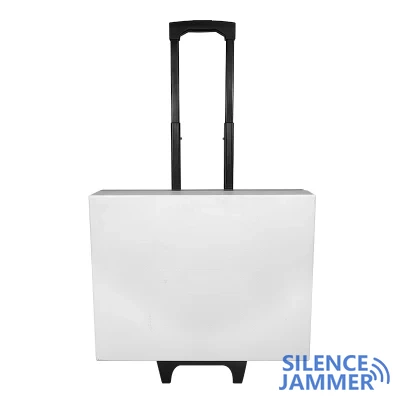In recent years, the proliferation of illegal mobile phones in Mexico City prisons has become a focus of public attention.signal jammer From 2006 to 2017, more than 21,000 mobile phones were seized in the prisons of the Mexican capital.cell phone jammer However, these confiscated devices are just the tip of the iceberg, and more mobile phones are still circulating in the hands of prisoners. This not only exposes the loopholes of the prison management system, but also highlights the ineffectiveness of signal blocking devices, and even involves multiple levels of officials shirking responsibility. GPS jammer
Security risks behind the proliferation of mobile phones
Mexico City's prison system is facing the problem of an overabundance of mobile phones, especially in the so-called "most secure" prison - the Diamond Module. Wifi jammer This module is located in Santa Martha Acatitla Prison and mainly holds Mexico City's most dangerous criminals, including murderers, kidnappers and extortionists. However, this prison, which is considered to have the highest security level, has seized more than 1,000 illegal mobile phones in the past few years, more than the number of mobile phones seized in other capital prisons.
These mobile phones have greatly facilitated criminal activities inside and outside the prison, especially telephone extortion. According to the Mexican Civic Commission, between 2010 and 2016, telephone extortion attempts increased from 354 to 911, with the majority of calls coming from prisons. This suggests that despite the installation of signal blockers in prisons, they are still not effective in preventing the use of phones.

Failure of signal blockers
In 2010, the Federal District government announced an investment of more than 24 million pesos to install signal blockers in all prisons in Mexico, aimed at blocking mobile phone signals and preventing prisoners from using them for criminal activities. According to the plan, these devices should be effective in all prisons, especially the high-security diamond cabins. However, six years later, the actual effect of the devices is very limited.
In accordance with official transparency requirements, both the Mexico City government and the federal government have claimed that they are "unaware" of the operation of these signal blockers. The federal and local governments are passing the buck, with local authorities claiming that the equipment is the responsibility of the federal government and the federal government saying that it is not under its jurisdiction. There is no clear answer from both sides even on the maintenance, service life and failure of the equipment.
Operation of criminal networks and involvement of security personnel
Criminal activities carried out through illegal mobile phones not only involve prisoners, but also security personnel inside prisons. In 2017, a report jointly released by Grupo Imagen and El País showed that in a prison in Mexico City, the ransomware network was almost a daily operation, and prison security personnel were directly involved in it, even helping prisoners obtain and use mobile phones. This situation further exacerbated the severity of the proliferation of mobile phones and greatly reduced the effectiveness of signal interception equipment.
Vulnerabilities in the prison management system
From the seized data, there are serious loopholes in the management system of Mexico City Prison. Although prisoners are not allowed to own mobile phones by law, more than 21,000 mobile phones were seized in various prisons in Mexico City from 2006 to 2017. Behind this data is the failure of the prison management system, especially in the diamond module with the highest security level.
As the most secure prison module in Mexico City, the diamond module should strictly prevent any illegal devices from entering. However, data shows that from 2012 to 2017, the prison seized 1,000 mobile phones, far more than other prisons. This shows that even under the conditions of triple security filtering, mobile phones can still enter the prison and the number is not effectively controlled.
The double dilemma of law and technology
The proliferation of mobile phones in Mexico City prisons not only reflects management loopholes, but also exposes legal and technical dilemmas. According to the design, signal blockers should be able to effectively block mobile phone signals in prisons. However, due to poor maintenance, unclear responsibilities and aging equipment, these blockers have not played their due role.
Kommentare zu "The proliferation of mobile phones in Mexico City prisons and the failure of signal blockers"
Es sind noch keine Kommentare vorhanden
Kommentar schreiben
Möchten Sie dem Autor einen Kommentar hinterlassen? Dann Loggen Sie sich ein oder Registrieren Sie sich in unserem Netzwerk.
 16.09.2024
16.09.2024
 6
6
 11
11
 169
169

 Besonders empfehlenswerte Werke:
Besonders empfehlenswerte Werke: